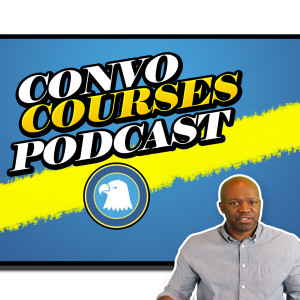Episodes

Sunday Feb 16, 2025

Saturday Feb 15, 2025

Tuesday Feb 11, 2025

Sunday Feb 09, 2025

Saturday Feb 08, 2025

Saturday Feb 08, 2025

Wednesday Nov 20, 2024
Wednesday Nov 20, 2024
https://convocourses.net articles: https://www.reuters.com/technology/cybersecurity/t-mobile-hacked-massive-chinese-breach-telecom-networks-wsj-reports-2024-11-16/
https://www.politico.com/news/2024/11/14/rand-paul-kneecap-cisa-00189698
https://www.darkreading.com/threat-intelligence/mastercard-bet-recorded-future-win-cti
Sign up for free courses! http://convocourses.com http://convocourses.net
- (Discounts and free stuff) Join advanced readers group: https://booksprout.co/reviewer/team/35902/convocourses Join the Newsletter: https://convocourses.aweb.page/p/9ec4fef1-07b2-4a1a-9834-6817785d9e7d

Tuesday Nov 12, 2024
Tuesday Nov 12, 2024
https://convocourses.net
Introduction and Community Focus
Host Introduction: Bruce kicks off the session, welcoming viewers to his live podcast on CovoCourses.
Format: Bruce explains that he's going off-script to directly address viewer questions from YouTube and TikTok.
Career Path and Job Market Advice
Career Advice for Cybersecurity Beginners
Assessment of Background: Bruce advises viewers to consider their current field and experience.
Local Job Opportunities: Suggests exploring entry-level roles, such as technician positions at local internet providers, to gain foundational networking knowledge.
Government and Federal Job Options
White House Initiative: Mentions job opportunities in cybersecurity promoted by the White House and federal agencies, especially for roles in AI and cyber tech. https://www.whitehouse.gov/oncd/preparing-our-country-for-a-cyber-future/service-for-america/
Government Job Stability: Highlights the demand in the government sector and encourages applying through resources like "Service for America" on whitehouse.gov.
Broad Demand for Cyber Skills Across Industries
Sector Demand: Reiterates the high demand for cybersecurity skills in sectors like healthcare, government, and financial services.
Role Terminology: Advises on using general terms (e.g., "Network Operation Center Manager") rather than military-specific terms to broaden appeal for civilian job applications.
Getting Started in Cybersecurity for Beginners
Internships and Certifications
Recommends gaining experience through internships or apprenticeships, which can strengthen resumes.
Certifications: Suggests Red Hat and Linux skills as beneficial for foundational knowledge in cybersecurity.
Keywords and Resume Optimization
Resume Building: Emphasizes the importance of using specific keywords and phrases to enhance visibility on job platforms.
Tools and Technologies: Encourages learning tools like Splunk, Qualys, and Active Directory to add marketable skills to a resume.
Advice on Python Development and Cybersecurity Transition
Python in Cybersecurity: Discusses how Python skills are valuable in cybersecurity, especially in areas like automation, cloud security, and machine learning.
Potential Career Directions: Mentions that Python knowledge can be applied in fields like AI, machine learning, and application security, making it a versatile skill in IT and cybersecurity.
Encouragement for Cybersecurity Job Seekers
Persistency and Adaptability: Stresses the need to be open to different roles and to build skills, regardless of job titles.
Networking and Industry Knowledge: Suggests connecting with industry veterans and continuously enhancing one's technical profile to remain competitive.

Monday Nov 11, 2024
Monday Nov 11, 2024
https://convocourses.net
This is not political, I am not choosing sides, but we are taking a look at some of the policies he proposed.
Trump's Proposals
IT - Domestic Manufacturing (Tariffs)
Cybersecurity - Enhanced Cyber Defense Capabilities
AI - Remove bidens government oversight

Thursday Oct 31, 2024







